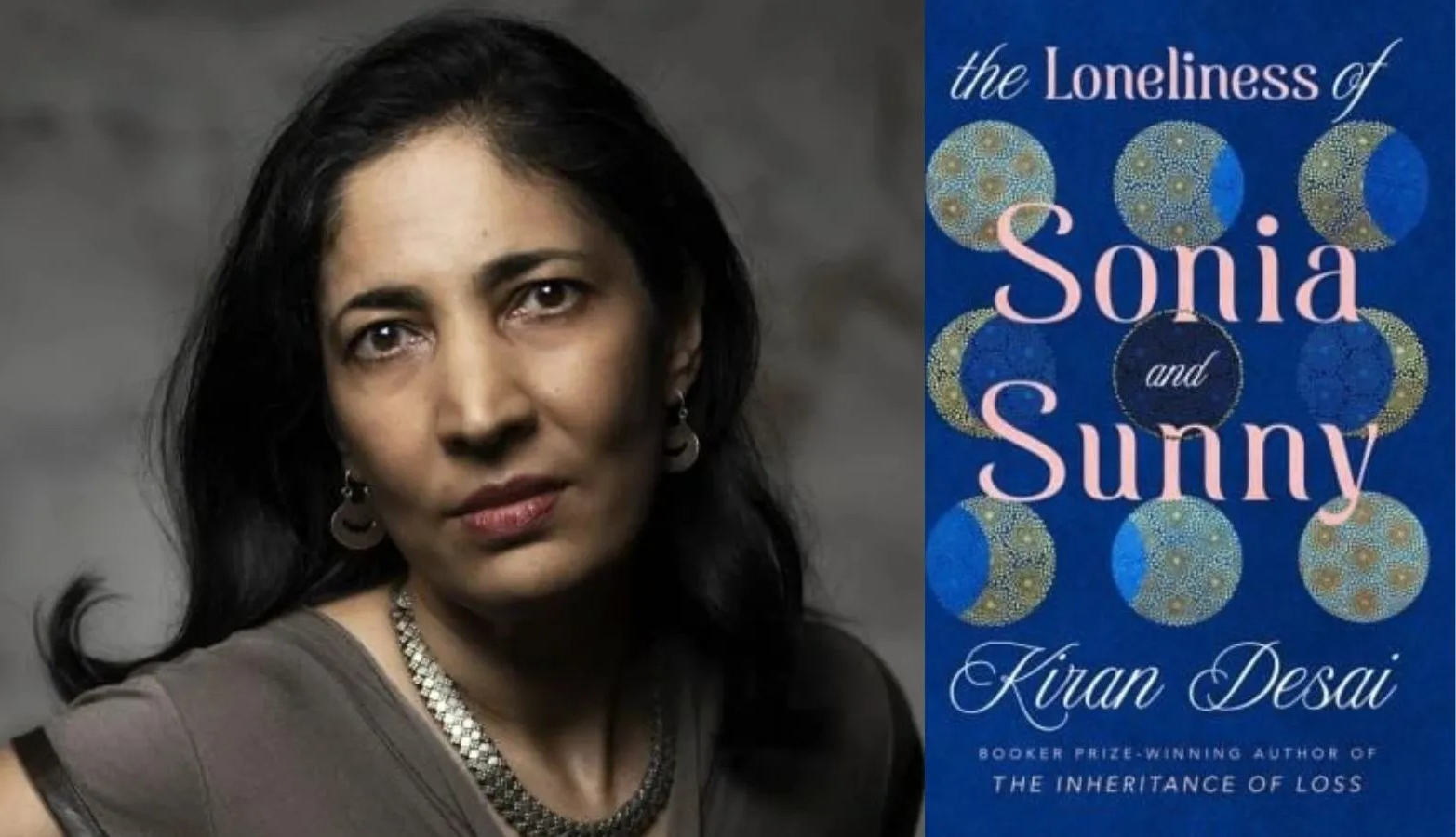Feb 22, 2026
Feb 22, 2026
by Varala Anand

“Fame is another form of loneliness,” says Kiran Desai. She made this remark while speaking about her Booker-shortlisted novel The Loneliness of Sonia and Sunny. Even when a person earns recognition, respect, and global acclaim, a deep, lingering solitude remains. Fame sets one apart from the world: everyone looks, admires, even applauds — but genuine closeness, intimacy, and quiet companionship gradually slip away. This, she says, is her firm belief.
Nearly two decades after The Inheritance of Loss won the Booker Prize, Kiran Desai has once again written a tender and subtle novel that explores the lives of post-migration India and the confusions of identity. Her new novel, The Loneliness of Sonia and Sunny, reveals the distances between human beings, the weight carried by migrant lives, and the clear, profound quietude that loneliness sometimes brings to the soul.
In a recent interview, she said,
“The idea for this novel began with the loneliness of our times.”
She also wanted to write a modern love story suffused with the grace and beauty of old-world romance. “I wanted today’s love story to carry the sweetness of the past,” she said. “And I believe I’ve done that.”
In earlier generations — especially those of our grandparents — Indian love stories grew and remained rooted within a single community, a single class, a single faith, and often even within the same town or region. But today, in a globalized world, the path of love turns across many directions and many borders. That is why Sonia and Sunny, in this novel, constantly question and reflect:
Why this person? Why not someone else? Why here? Why not elsewhere?
In earlier times, people tended to stay in the places where they felt they naturally belonged. But in this novel, Sonia and Sunny move, meet, and part across Europe, India, and America. Their understanding of themselves keeps shifting and softening as they travel.
For this reason, The Loneliness of Sonia and Sunny is not merely a love story.
It is also a reflection of the psychological state of diasporic Indians — the yearning to feel close even while living far away.
Kiran Desai was born on Friday, September 3, 1971, in Chandigarh. Her mother is the acclaimed writer Anita Desai and her father is Ashutosh Desai. Kiran was born into a home filled with books and literary affection — so her relationship with literature came naturally.
Even though her literary inheritance comes from both parents, her quiet lyricism, her gentle tone, and the subtle music of silence in her words are said to be influenced largely by her father. Her mother Anita Desai, of German ancestry and a distinguished Indian novelist, also shaped her literary sensibility. Her father is Bengali. This blending of cultures is what gives Kiran Desai her distinct humanistic gaze.
Her earlier novels Hullabaloo in the Guava Orchard and The Inheritance of Loss are both recognized as important explorations of identity — both personal and collective — in a postcolonial world.
In Hullabaloo in the Guava Orchard, the protagonist Sampath Chawla retreats from societal pressures and climbs a guava tree. What begins as escape gradually becomes his new identity, not because of his own transformation, but because of how society chooses to interpret him — even turning him into a “holy man.” The novel gently satirizes the tensions between family, community, and the individual’s desire for freedom in postcolonial India.
In The Inheritance of Loss, Sai, a young woman born of mixed Indian–British heritage, lives between worlds — neither fully belonging to one nor the other. Her grandfather, a former colonial judge, too remains suspended between identities, unable to reconcile the two worlds he has known. When Gyan, a young Gorkha tutor, enters Sai’s life, love becomes entangled with race, nationalism, and social consciousness — pushing her to question her own identity.
Both novels portray how globalization fractures identity — the struggle between tradition and modernity, local belonging and global movement.
And now, we wait to see whether The Loneliness of Sonia and Sunny will bring Kiran Desai her second Booker Prize.
But taken together, her novels already tell us one powerful truth:
Human migration is not merely travel across geography.
It is the rediscovery — and sometimes, the rupture — of the self, culture, and identity.
Kiran Desai is indeed a writer India should be proud of.
01-Nov-2025
More by : Varala Anand